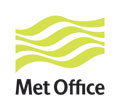Event Summary
Organization: UK Met Office, Deltares, GFDRR
Session Leads
- Paul Davies, UK Met Office
- Lydia Cumiskey, Deltares
- Rick Murnane, GFDRR
Speakers
- Paul Davies, Chief Meteorologist, UK Met Office
- Dr. Mahar Lagmay, Director of the National Operational Assessment of Hazards (NOAH) project, Department of Science and Technology, Philippines
- Flavio Montaje, Red Cross Red Crescent Climate Centre, Mozambique
- Denny Wahyu Haryanto Wastoni, Head, Jakarta Disaster Management Authority (BPBD DKI Jakarta)
Description
Warnings to exposed populations are only effective if information is received, understood, and acted upon by those at risk. Despite huge advances in forecasting and warning technology, it remains challenging to present forecasts and warnings in a user-friendly way that initiates protective behavioural responses. Providing information on the potential impacts of hazard events can improve guidance to end-users for their decision-making and result in more effective actions.
To create an impact-based forecast, disaster risk information (including hazard, exposure and vulnerability data) needs to be utilised during the hazard forecasting, warning generation and dissemination process. Mainstreaming the use of exposure and vulnerability information into forecast impacts of real-time hazard scenarios for end-users comes with challenges. To do this effectively requires multi-sectoral partnerships (disaster management agencies, national hydro-meteorological services, critical infrastructure operators and civil society organisations) and their information sources that promote information and data sharing.
This session showcased emerging best practices and discussed the challenges and opportunities for mainstreaming impact-based forecasting and warning as an important component in an effective ‘end-to-end’ early warning system.
Presentations
Working in Partnership The final mile: Connecting an impact-based warning service to decision making – Paul Davies, Chief Meteorologist, UK Met Office
Nationwide Operational Assessment of Hazards Project – Project NOAH team
Towards an Impact Based Warning Service in Mozambique – Flávio Monjane, RCCC technical advisor
Strengthening Flood Risk Information Management: Case Study of “Last Mile” Investment: Jakarta, Indonesia – Bambang Surya Putra, Head of Informatics and Controlling Division, Disaster Management Agency, Jakarta
Ignite
 |
 |
 |
